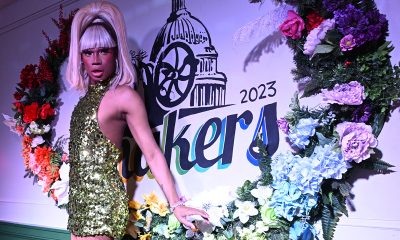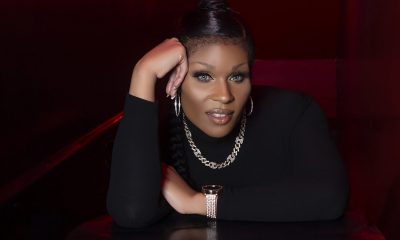Arts & Entertainment
Emmys noms 2018: ‘Assassination of Gianni Versace,’ ‘RuPaul’s Drag Race’
‘Queer Eye,’ ‘Unbreakable Kimmy Schmidt’ also earn recognition
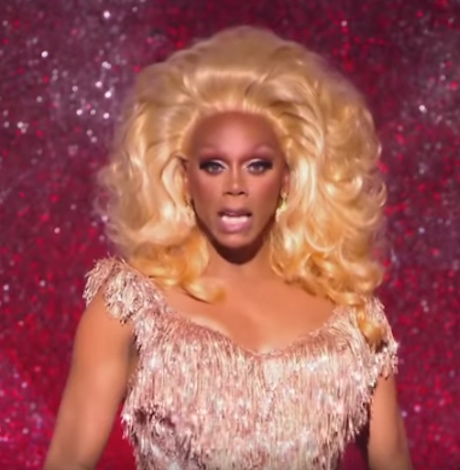
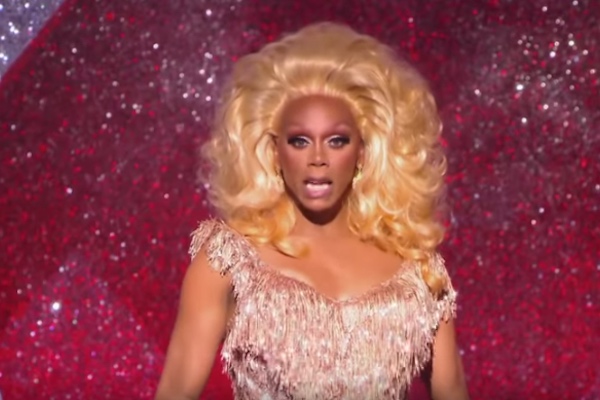
RuPaul on the season 10 finale of ‘Drag Race’ (Screenshot via YouTube)
The 2018 Primetime Emmy nominations were announced on Thursday morning at the Television Academy’s Wolf Theatre with some notable LGBT representation.
“RuPaul’s Drag Race” received its third nomination for Outstanding Reality Competition Series and “RuPaul’s Drag Race: Untucked” earned a nomination for Unstructured Reality Program. RuPaul also received a nomination for Host for Reality/Reality Competition Program where he faces competition against the likes of Jane Lynch for “Hollywood Game Night.”
Darren Criss was nominated for Lead Actor in a Limited Series or Movie for his role as Andrew Cunanan in “The Assassination of Gianni Versace.” Finn Wittrock, Ricky Martin and Edgar Ramirez were all also nominated for Supporting Actor in a Limited Series or Movie. “The Assassination of Gianni Versace: American Crime Story” also was nominated for Limited Series.
Lily Tomlin was honored with a Lead Actress in a Comedy Series nomination for “Grace & Frankie” and Sarah Paulson received a nomination for “American Horror Story: Cult.” Kate McKinnon was also nominated for Supporting Actress in a Comedy Series for her work on “Saturday Night Live.”
“Unbreakable Kimmy Schmidt” received a nomination for Comedy Series and Tituss Burgess got a nom for Supporting Actor in a Comedy Series.
Netflix’s “Queer Eye” reboot also received four nominations including for Structured Reality Program.
“Game of Thrones” earned the most nominations (22) followed by “Westworld” and “Saturday Night Live” with 21 nominations each and “The Handmaid’s Tale” with 20 nominations.
The 70th annual Primetime Emmy Awards air on Monday, Sept. 17.
See the list of nominations below.
Lead Actor in a Limited Series or Movie:
Antonio Banderas (“Genius: Picasso”)
Darren Criss (“The Assassination of Gianni Versace: American Crime Story”)
Benedict Cumberbatch (“Patrick Melrose”)
Jeff Daniels (“The Looming Tower”)
John Legend (“Jesus Christ Superstar”)
Jesse Plemons (“USS Callister”)
Lead Actress in a Limited Series or Movie:
Laura Dern (“The Tale”)
Jessica Biel (“The Sinner”)
Michelle Dockery (“Godless”)
Edie Falco (“The Menendez Murders”)
Regina King (“Seven Seconds”)
Sarah Paulson (“American Horror Story: Cult”)
Lead Actor in a Comedy Series:
Donald Glover (“Atlanta”)
Bill Hader (“Barry”)
Anthony Anderson (“Black-ish”)
William H. Macy (“Shameless”)
Larry David (“Curb Your Enthusiasm”)
Ted Danson (“The Good Place”)
Lead Actress in a Comedy Series:
Pamela Adlon (“Better Things”)
Rachel Brosnahan (“The Marvelous Mrs. Maisel”)
Tracee Ellis Ross (“Black-ish”)
Allison Janney (“Mom”)
Lily Tomlin (“Grace and Frankie”)
Issa Rae (“Insecure”)
Lead Actor in a Drama Series:
Jason Bateman (“Ozark”)
Sterling K. Brown (“This Is Us”)
Ed Harris (“Westworld”)
Matthew Rhys (“The Americans”)
Milo Ventimiglia (“This Is Us”)
Jeffrey Wright (“Westworld”)
Lead Actress in a Drama Series:
Claire Foy (“The Crown”)
Tatiana Maslany (“Orphan Black”)
Elisabeth Moss (“The Handmaid’s Tale”)
Sandra Oh (“Killing Eve”)
Keri Russell (“The Americans”)
Evan Rachel Wood (“Westworld”)
Reality Competition
“The Amazing Race”
“American Ninja Warrior”
“Project Runway”
“RuPaul’s Drag Race”
“Top Chef”
“The Voice”
Variety Sketch Series
“Saturday Night Live” (NBC)
“Portlandia” (IFC)
“Drunk History” (Comedy Central)
“Tracey Ullman’s Show” (HBO)
“At Home with Amy Sedaris” (TruTV)
“I Love You, America” (Hulu)
Variety Talk Series
“The Daily Show With Trevor Noah”
“Full Frontal With Samantha Bee”
“Jimmy Kimmel Live”
“Last Week Tonight with John Oliver”
“Late Late Show with James Corden Late Show with Stephen Colbert”
Limited Series
“The Alienist”
“The Assassination of Gianni Versace: American Crime Story”
“Genius: Picasso”
“Godless”
“Patrick Melrose”
Comedy Series
“Atlanta” (FX)
“Barry” (HBO)
“Black-ish” (ABC)
“Curb Your Enthusiasm” (HBO)
“GLOW” (Netflix)
“The Marvelous Mrs. Maisel” (Amazon)
“Silicon Valley” (HBO)
“The Unbreakable Kimmy Schmidt” (Netflix)
Drama Series
“The Handmaid’s Tale”
“Game of Thrones”
“This Is Us”
“The Crown”
“The Americans”
“Stranger Things”
“Westworld”
Supporting Actor in a Drama Series
Nikolaj Coster-Waldau (“Game of Thrones”)
Peter Dinklage (“Game of Thrones”)
Joseph Fiennes (“The Handmaid’s Tale”)
David Harbour (“Stranger Things”)
Mandy Patinkin (“Homeland”)
Matt Smith (“The Crown”)
Supporting Actress in a Drama Series
Alexis Bledel (“The Handmaid’s Tale”)
Millie Bobby Brown (“Stranger Things”)
Ann Dowd (“The Handmaid’s Tale”)
Lena Headey (“Game of Thrones”)
Thandie Newton (“Westworld”)
Yvonne Strahovski (“The Handmaid’s Tale”)
Supporting Actor in a Comedy Series
Louie Anderson (“Baskets”)
Alec Baldwin (“Saturday Night Live”)
Tituss Burgess (“Unbreakable Kimmy Schmidt”)
Tony Shalhoub (“The Marvelous Mrs. Maisel”)
Kenan Thompson (“Saturday Night Live”)
Henry Winkler (“Barry”)
Supporting Actress in a Comedy Series
Zazie Beetz (“Atlanta”)
Alex Borstein (“The Marvelous Mrs. Maisel”)
Aidy Bryant (“Saturday Night Live”)
Betty Gilpin (“GLOW”)
Leslie Jones (“Saturday Night Live”)
Kate McKinnon (“Saturday Night Live”)
Laurie Metcalf (“Roseanne”)
Megan Mullally (“Will & Grace”)
“Flint” (Lifetime)
“Paterno” (HBO)
“The Tale” (HBO)
“Black Mirror: USS Callister” (Netflix)Structured Reality Program
“Antiques Roadshow” (PBS)
“Fixer Upper” (HGTV)
“Lip Sync Battle” (Paramount)
“Queer Eye” (Netflix)
“Shark Tank” (ABC)
“Who Do You Think You Are?” (TLC)
Unstructured Reality Program
“Born This Way” (A&E)
“Deadliest Catch” (Discovery)
“Intervention” (A&E)
“Naked and Afraid” (Discovery Channel)
“RuPaul’s Drag Race: Untucked” (VH1)
“United Shades of America With W. Kamau Bell” (CNN)
Host for Reality/Reality Competition Program
W. Kamau Bell (“United Shades of America With W. Kamau Bell”)
Ellen DeGeneres (“Ellen’s Game of Games”)
RuPaul Charles (“RuPaul’s Drag Race”)
Heidi Klum and Tim Gunn (“Project Runway”)
Jane Lynch (“Hollywood Game Night”)
Supporting Actor in a Limited Series or Movie
Jeff Daniels (“Godless”)
Brandon Victor Dixon (“Jesus Christ Superstar”)
John Leguizamo (“Waco”)
Ricky Martin (“The Assassination of Gianni Versace: American Crime Story”)
Edgar Ramirez (“The Assassination of Gianni Versace: American Crime Story”)
Michael Stuhlbarg (“The Looming Tower”)
Finn Wittrock (“The Assassination of Gianni Versace: American Crime Story”)
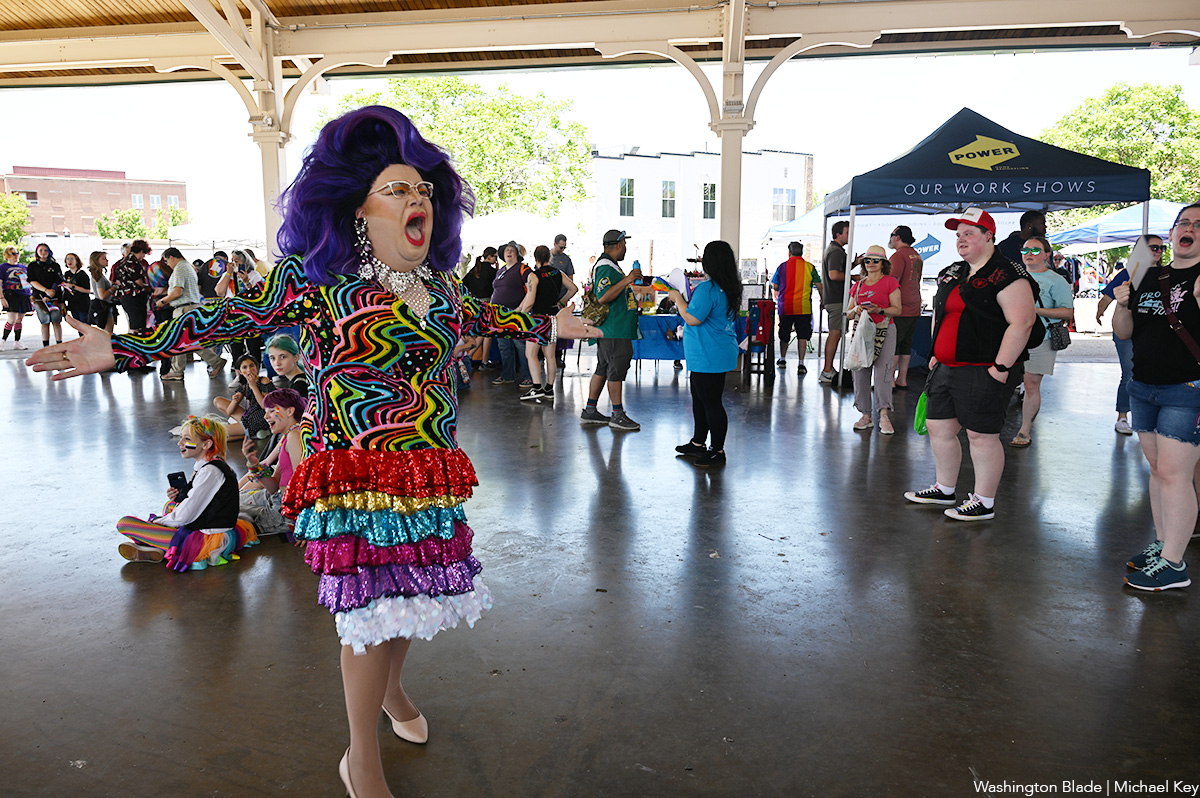
The fourth annual Equality Prince William Pride was held at the Harris Pavilion in Manassas, Va. on Saturday, May 17.
(Washington Blade photos by Michael Key)
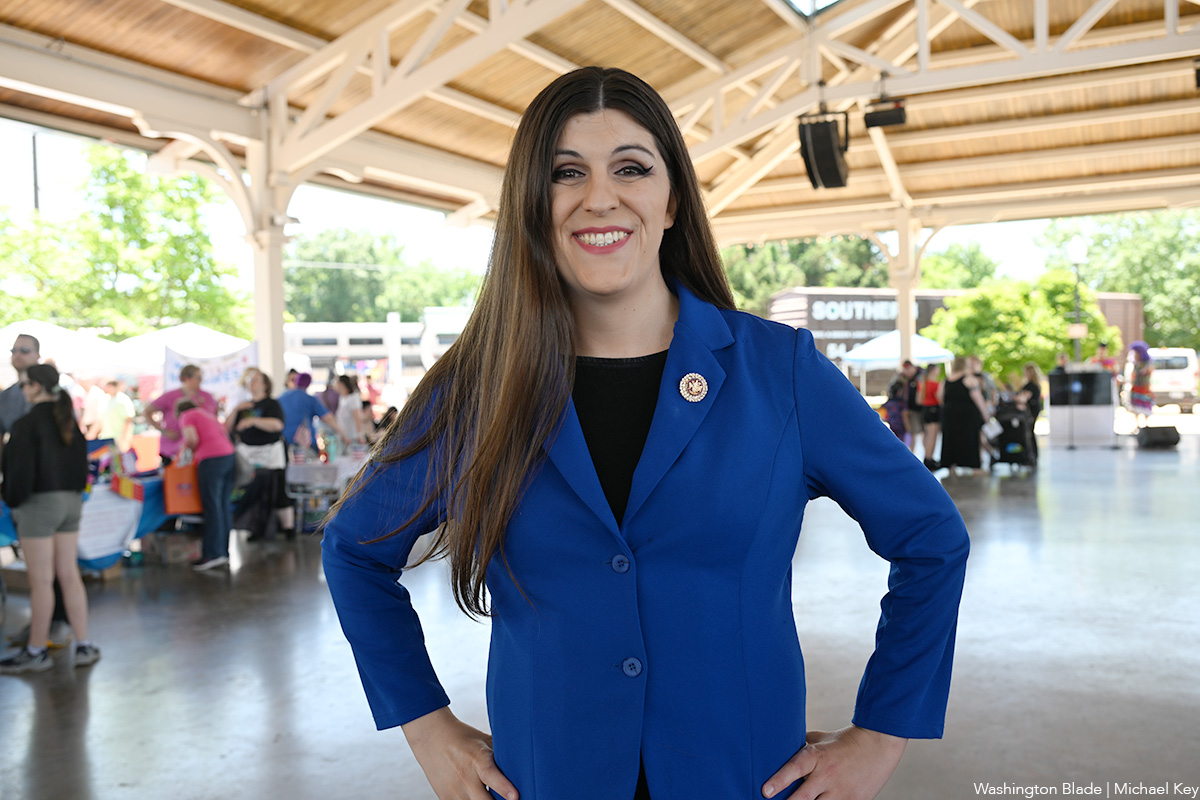
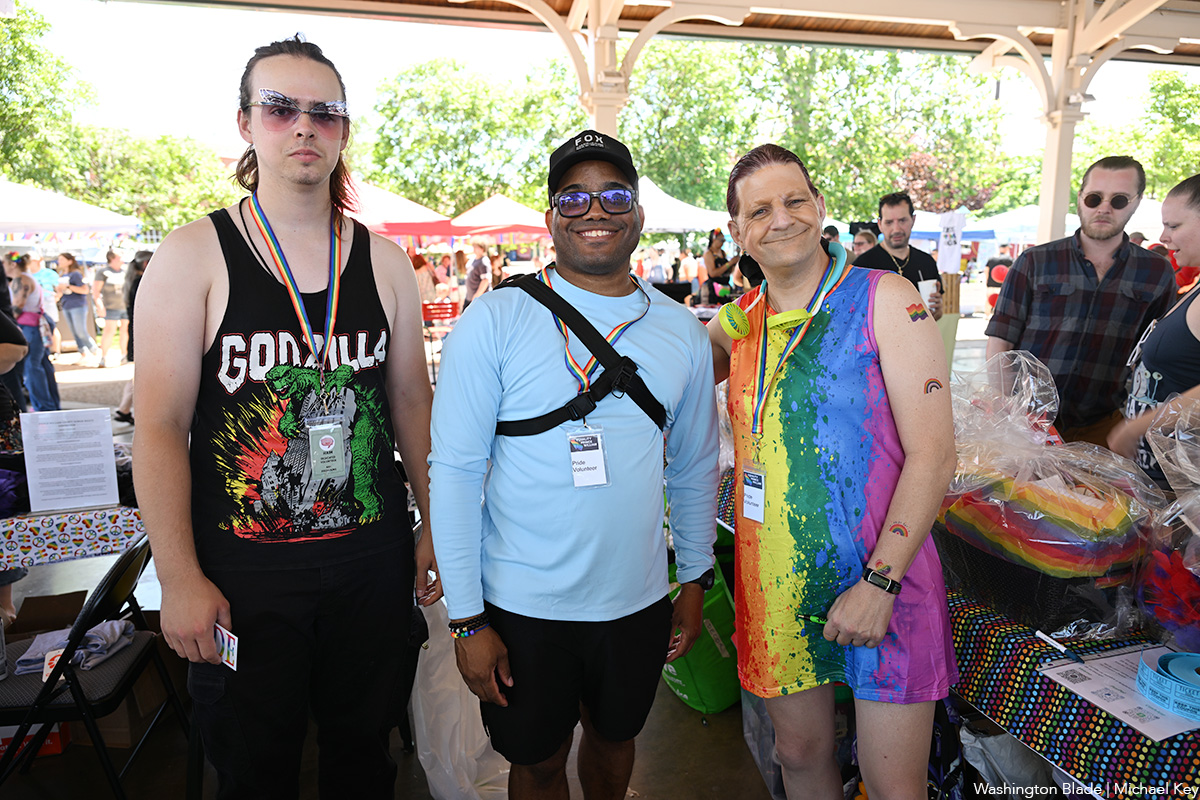

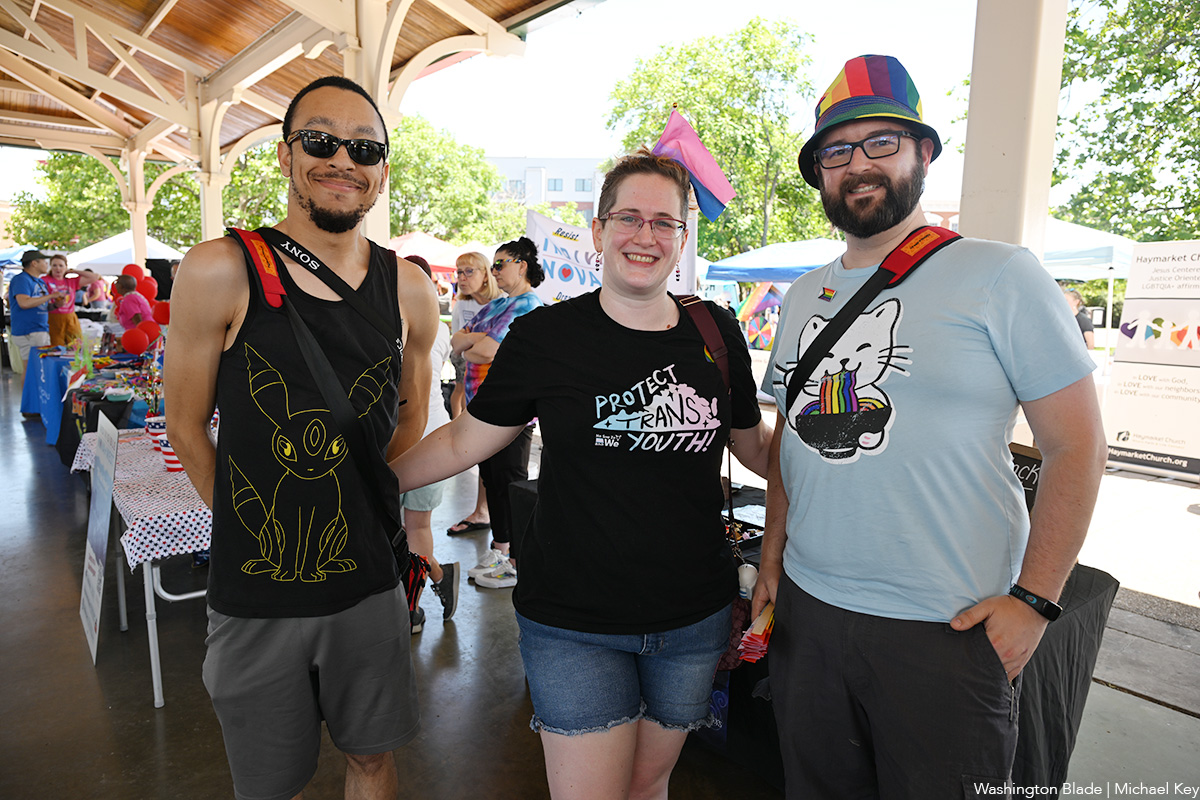

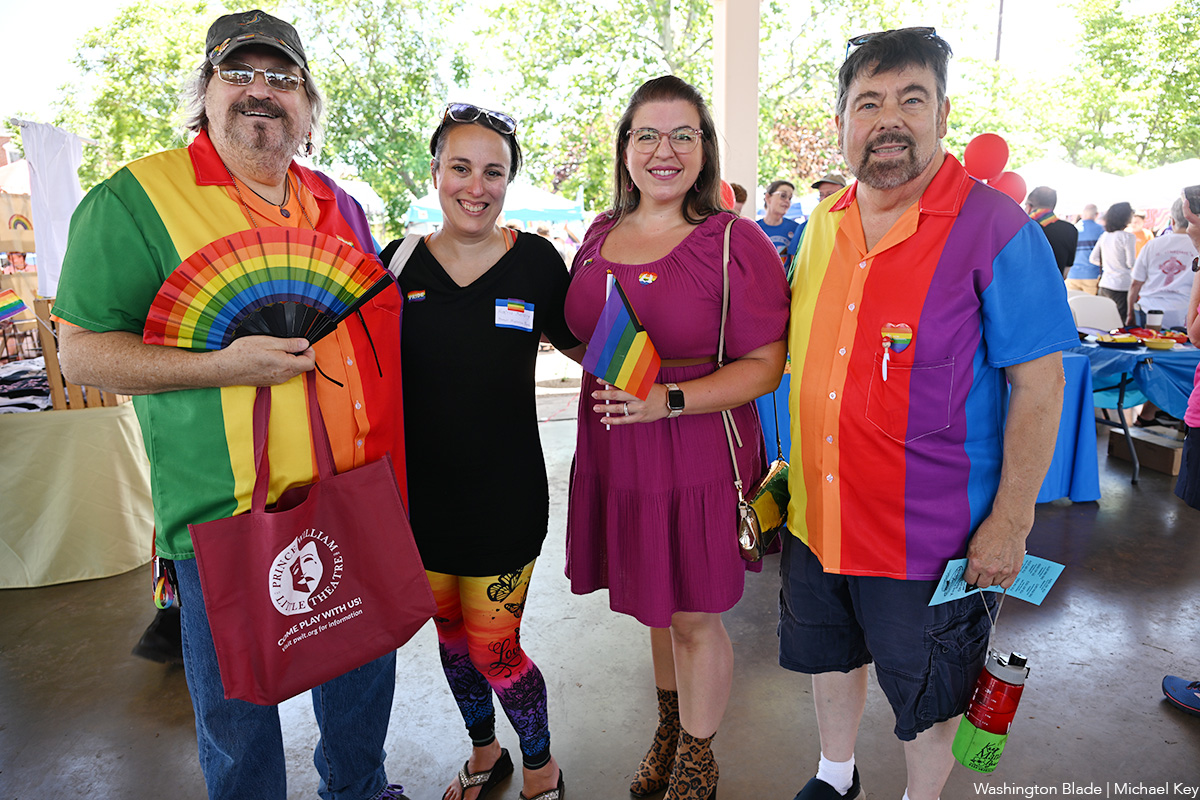

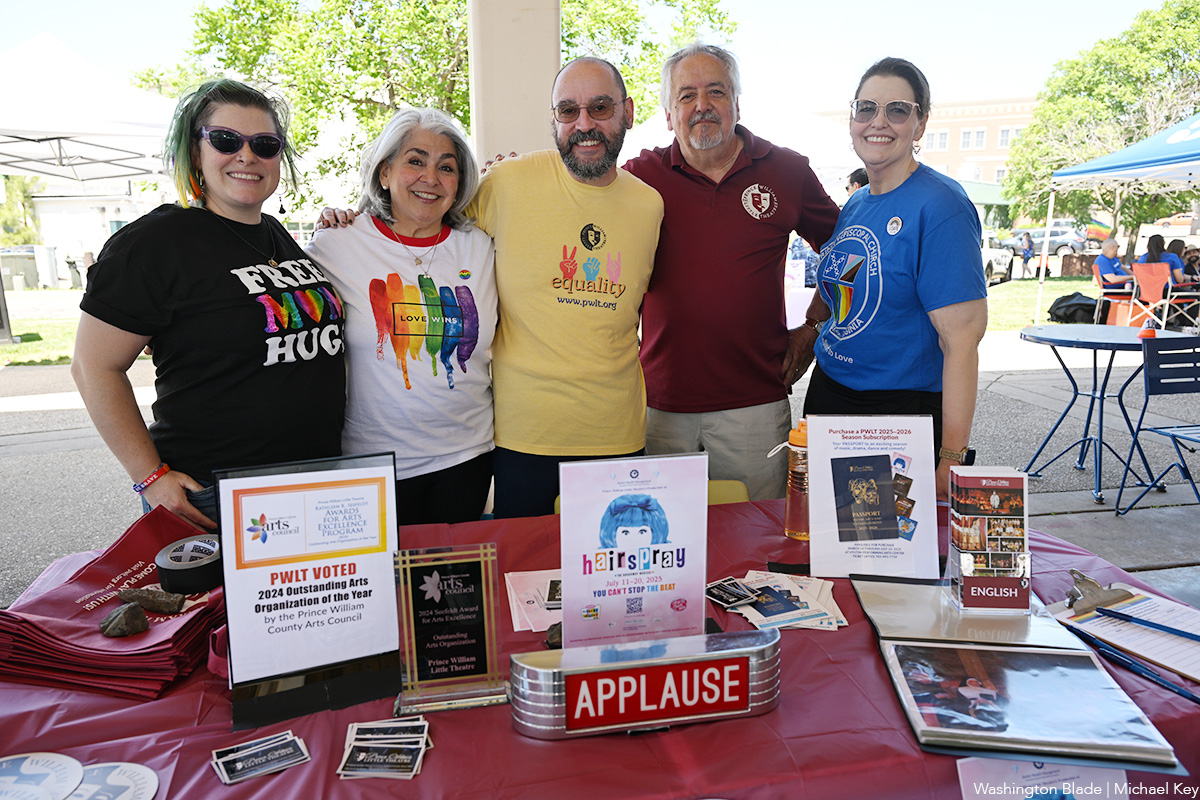

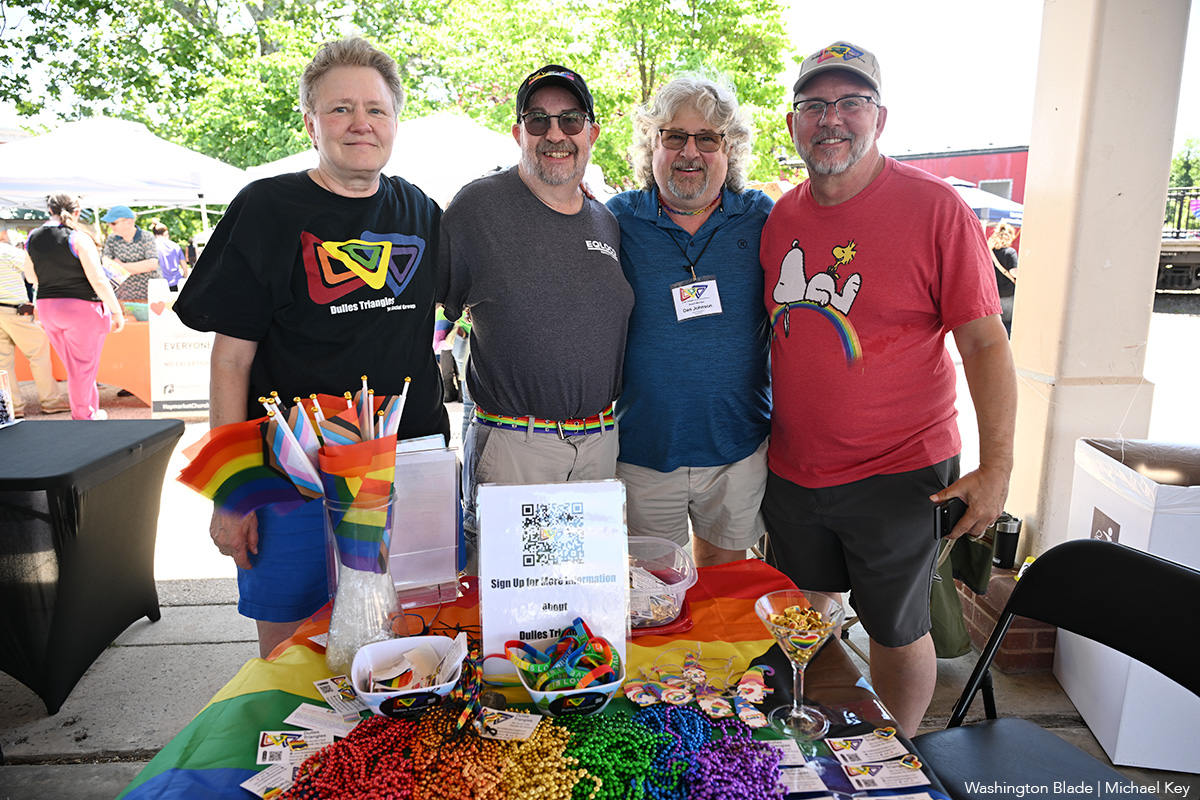

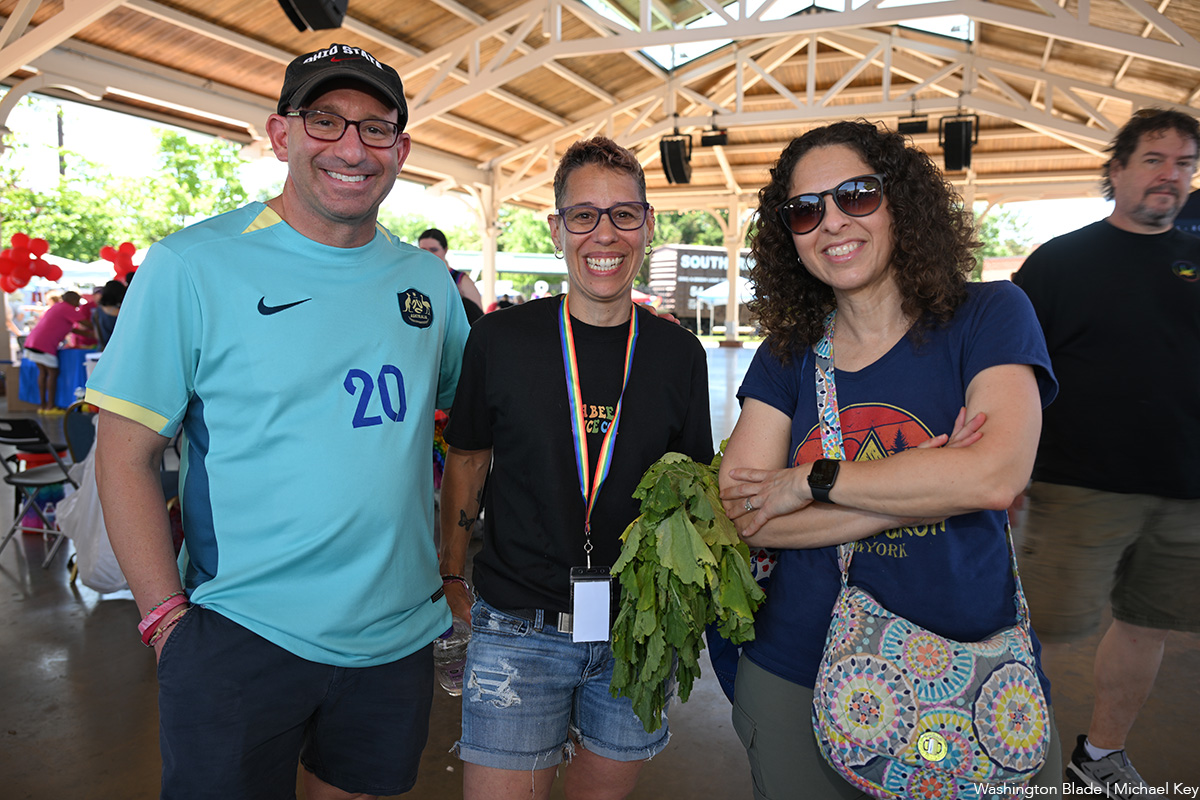
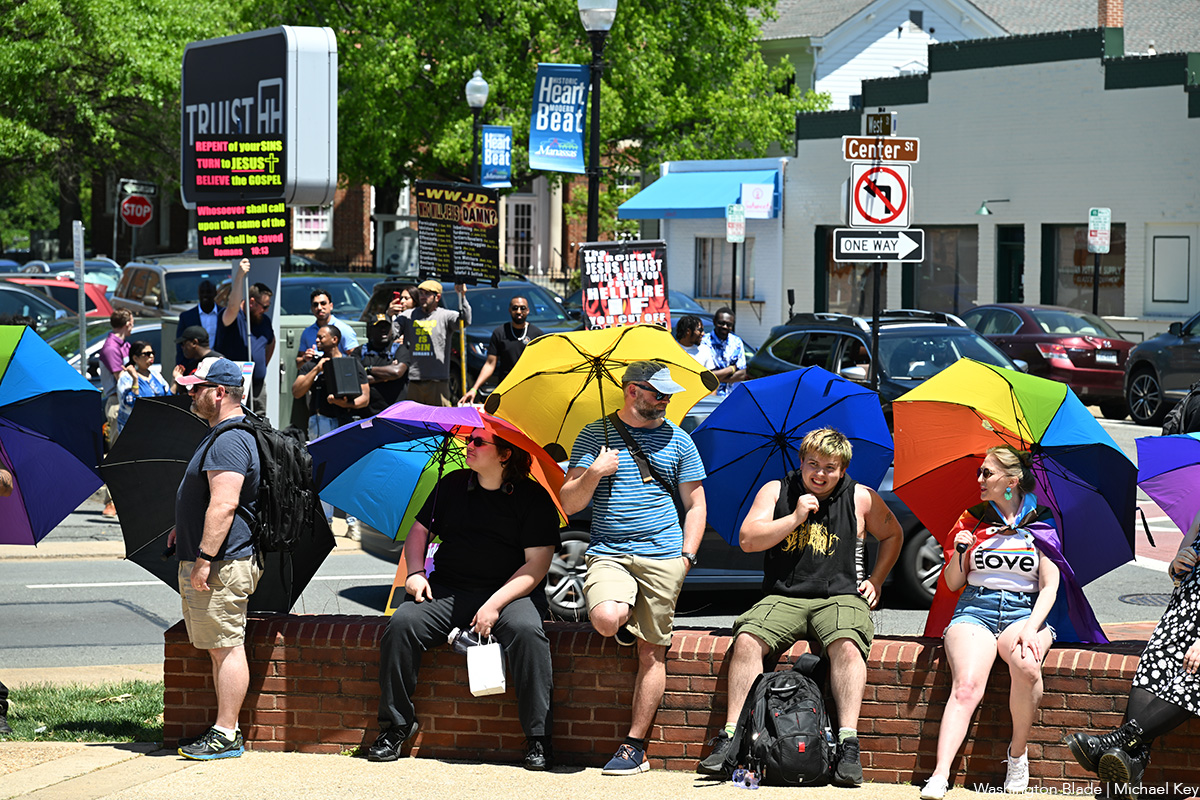
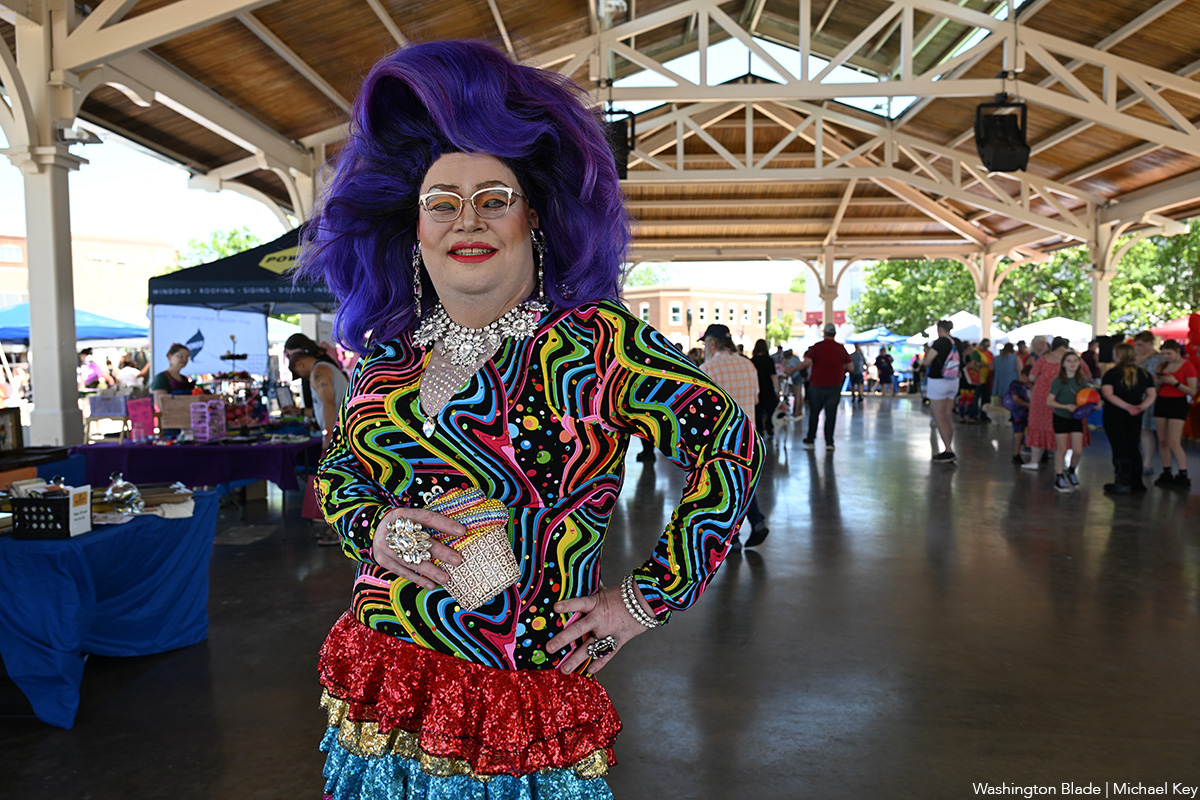
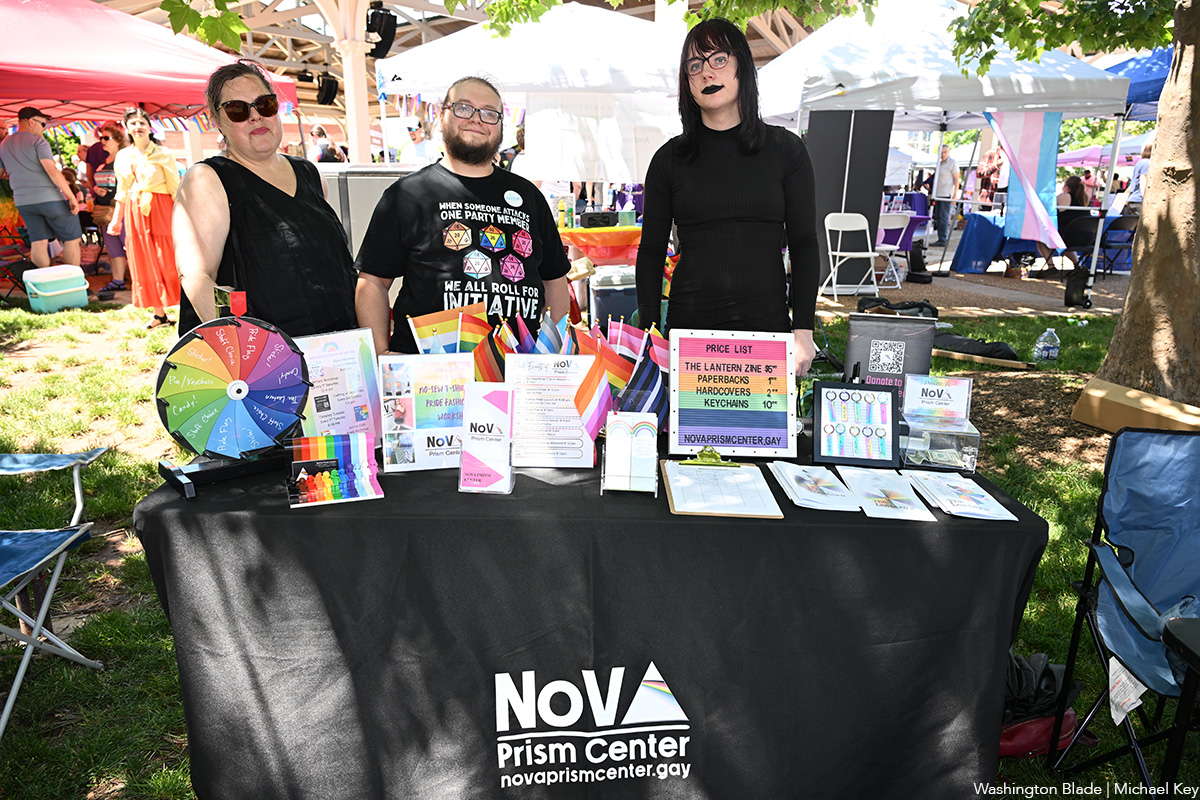

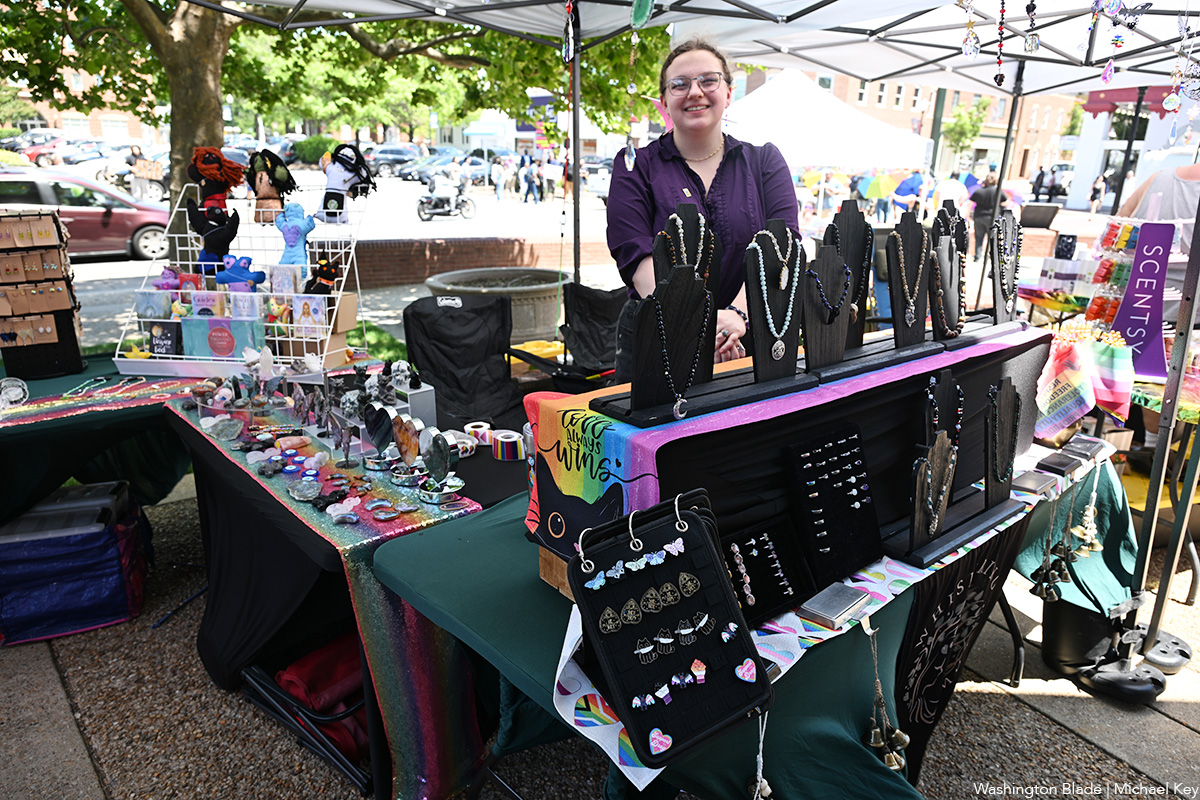
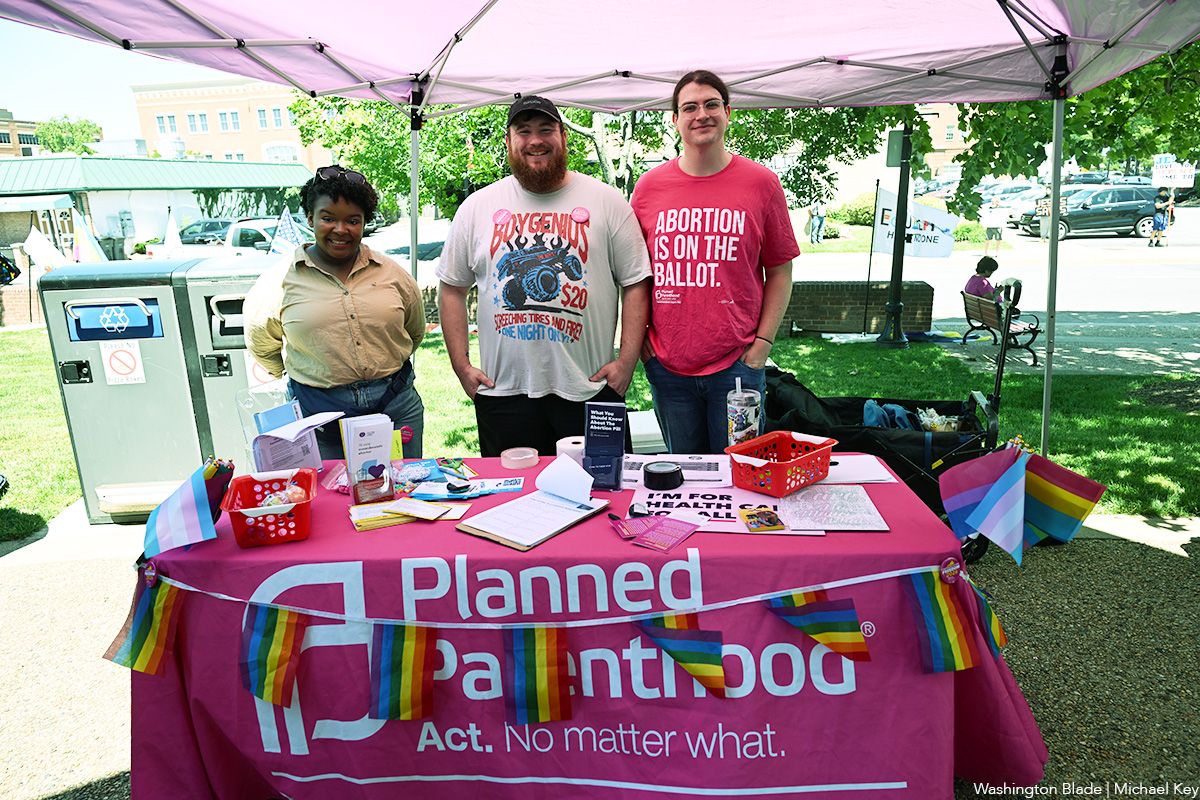
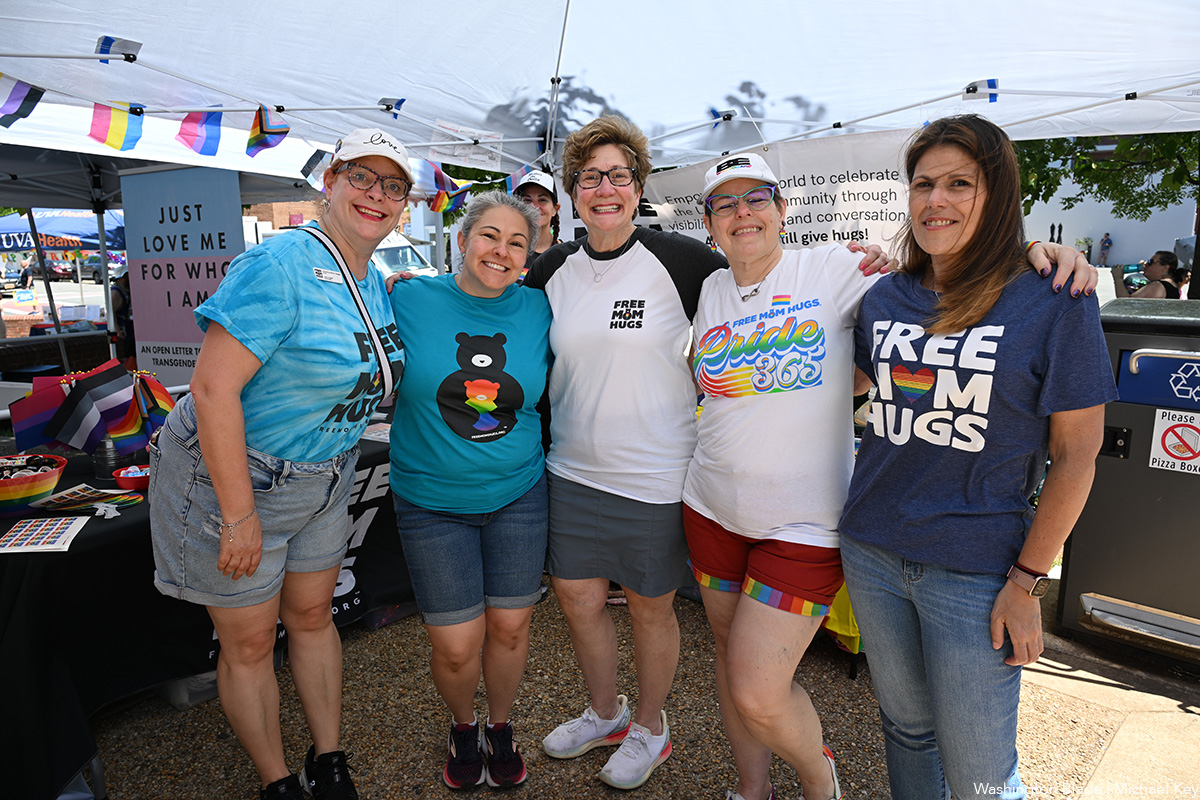

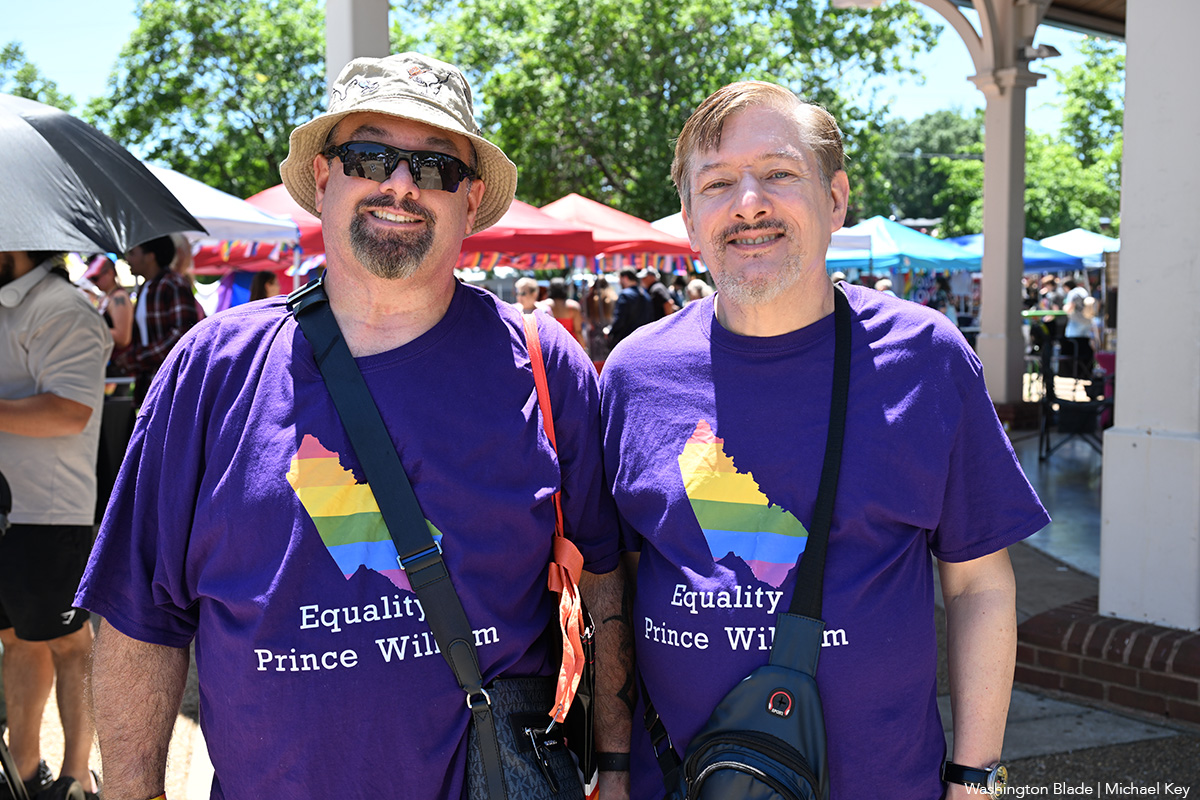
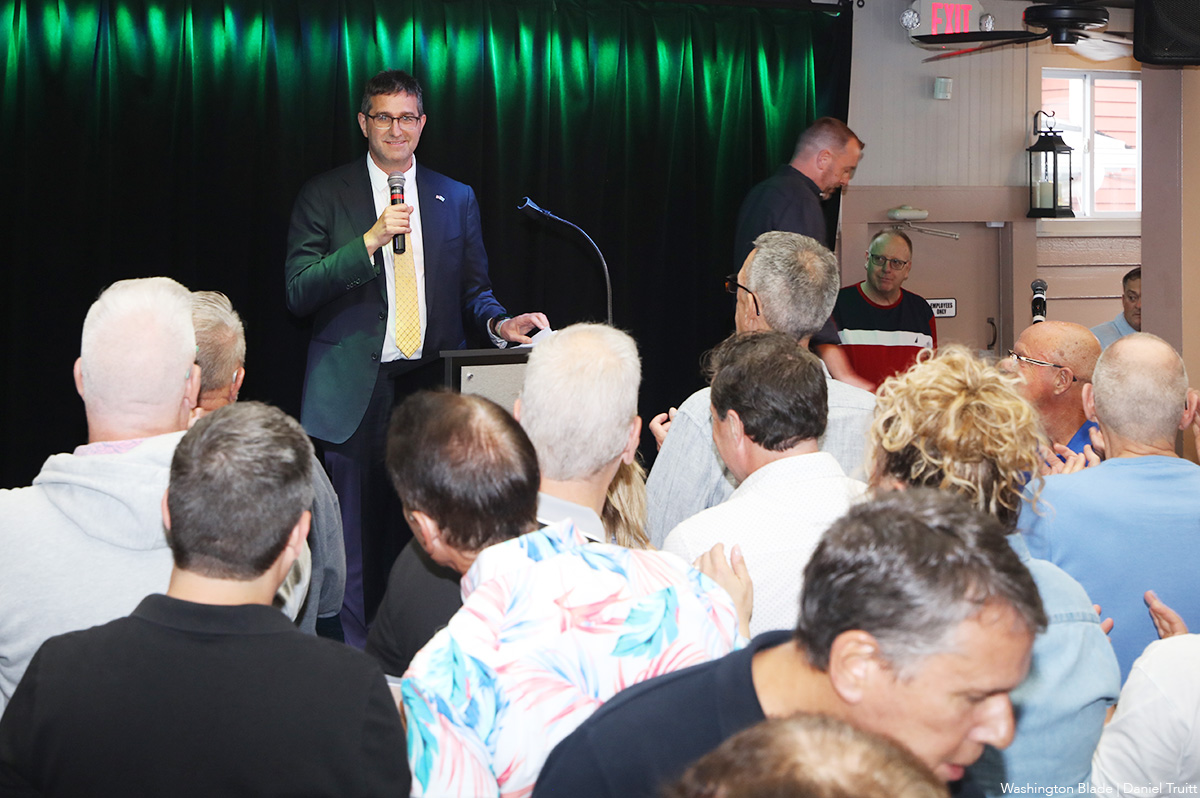
The Washington Blade held its 18th annual Summer Kickoff Party in Rehoboth Beach, Del., on Friday, May 16. Delaware Gov. Matt Meyer spoke along with State Sen. Russ Huxtable, CAMP Rehoboth Executive Director Kim Leisey, Blade Editor Kevin Naff, and Clear Space Theatre Managing Director Joe Gfaller. The event raises funds for the Steve Elkins Memorial Fellowship in Journalism, which was awarded to AU student Abigail Hatting.
(Washington Blade photos by Daniel Truitt)
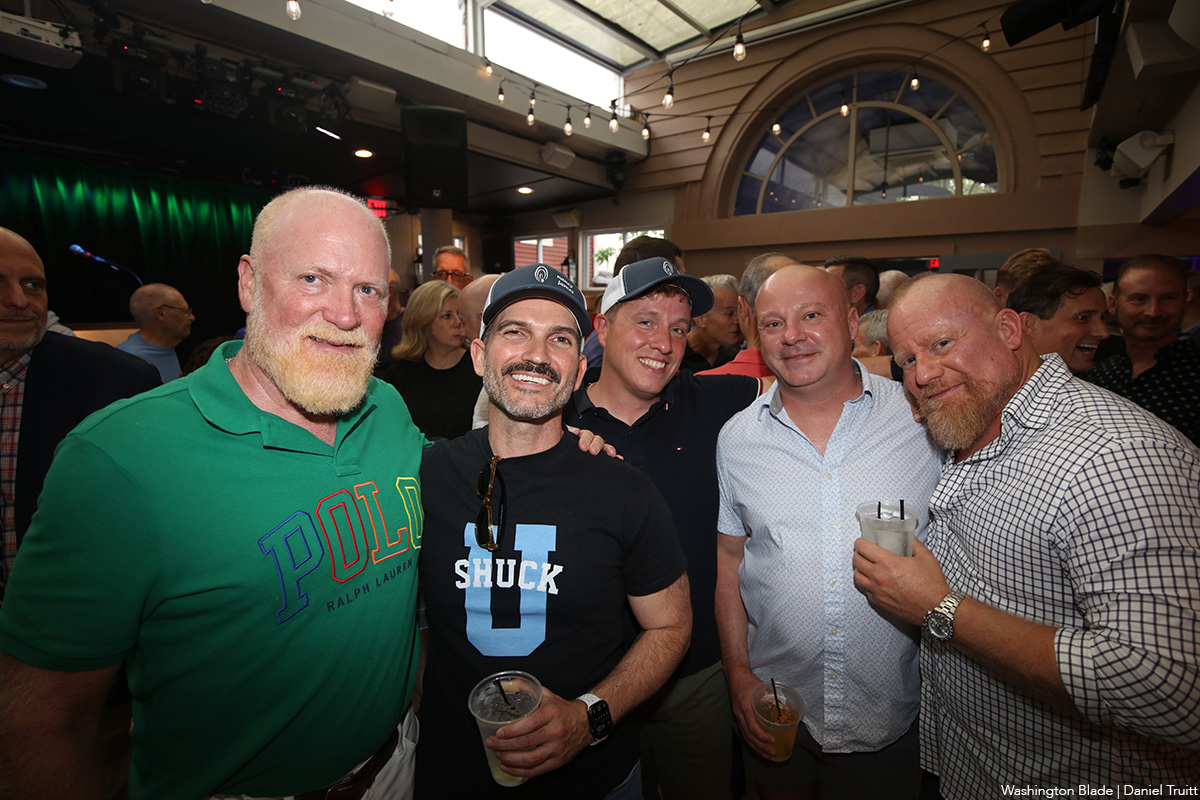
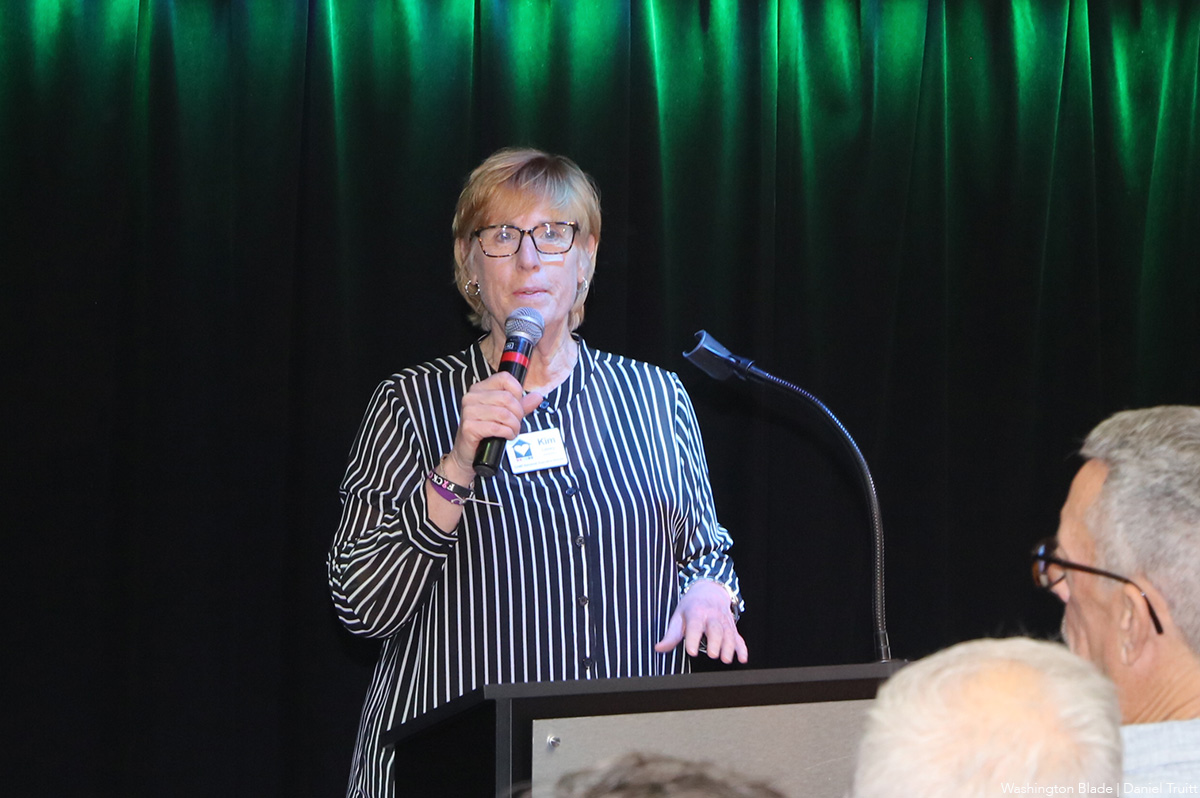
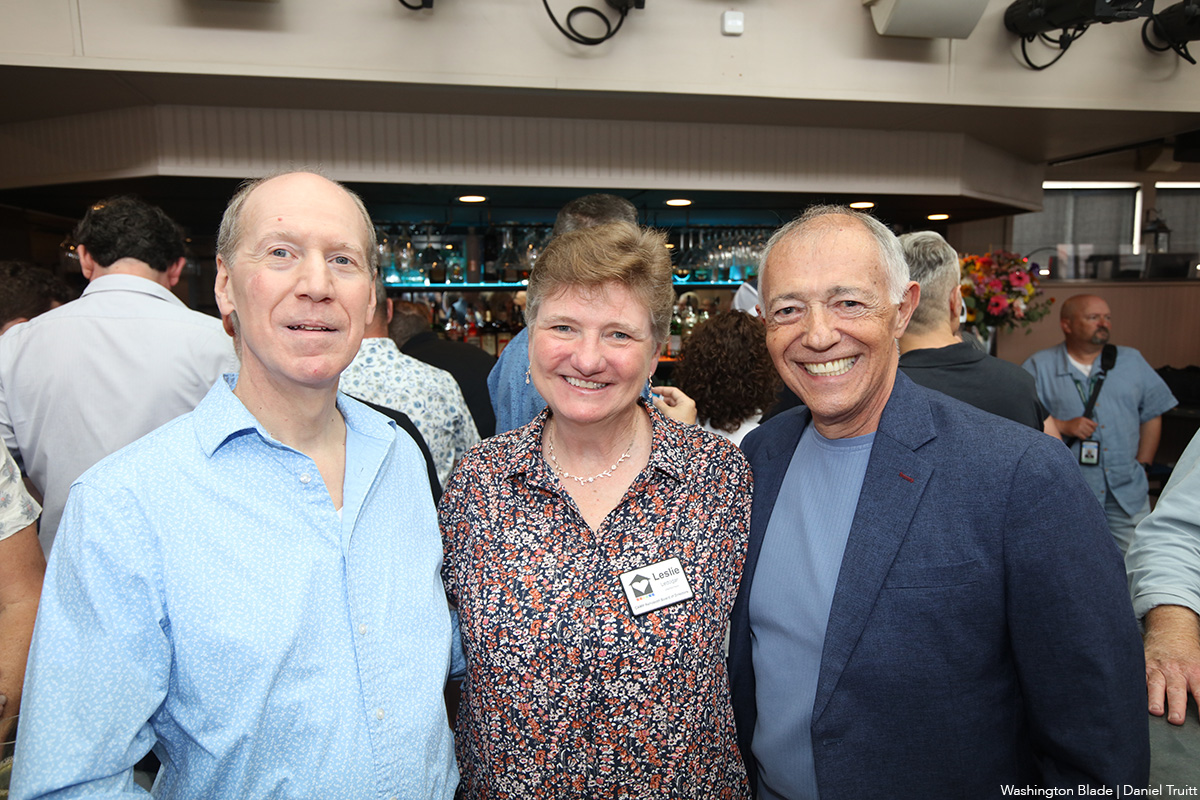
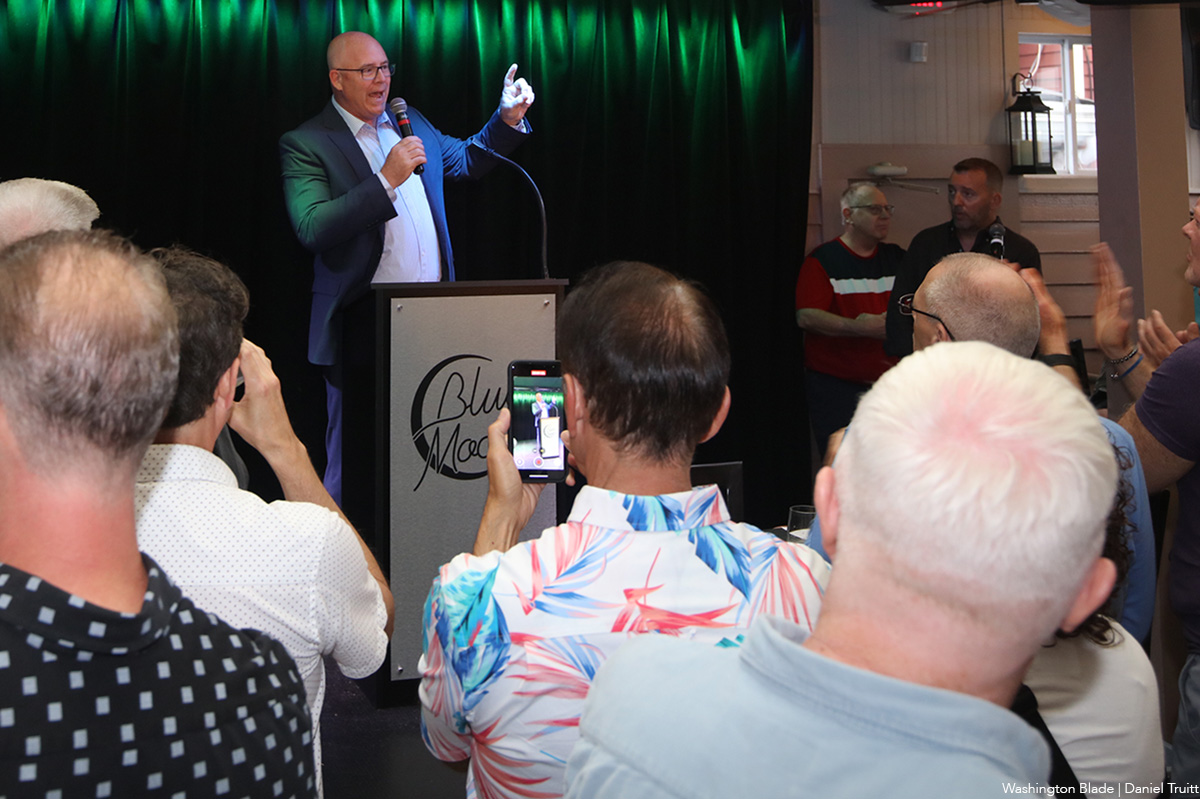
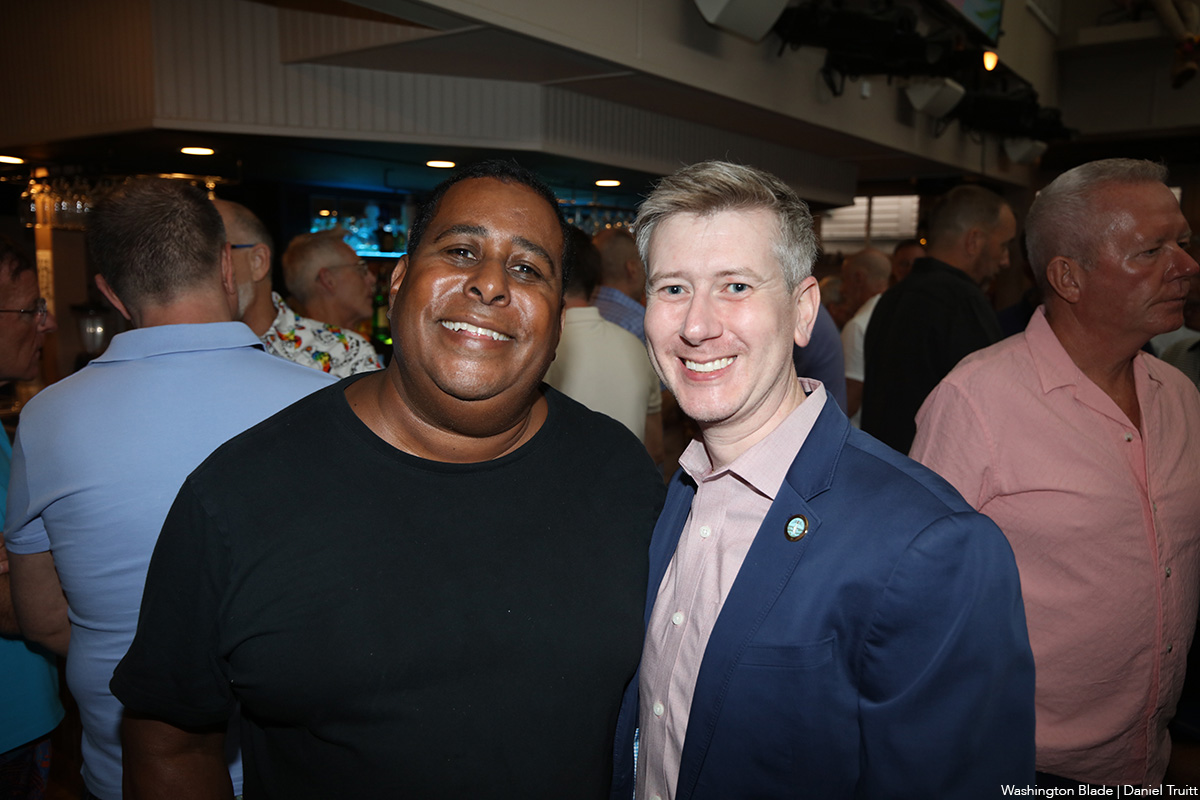

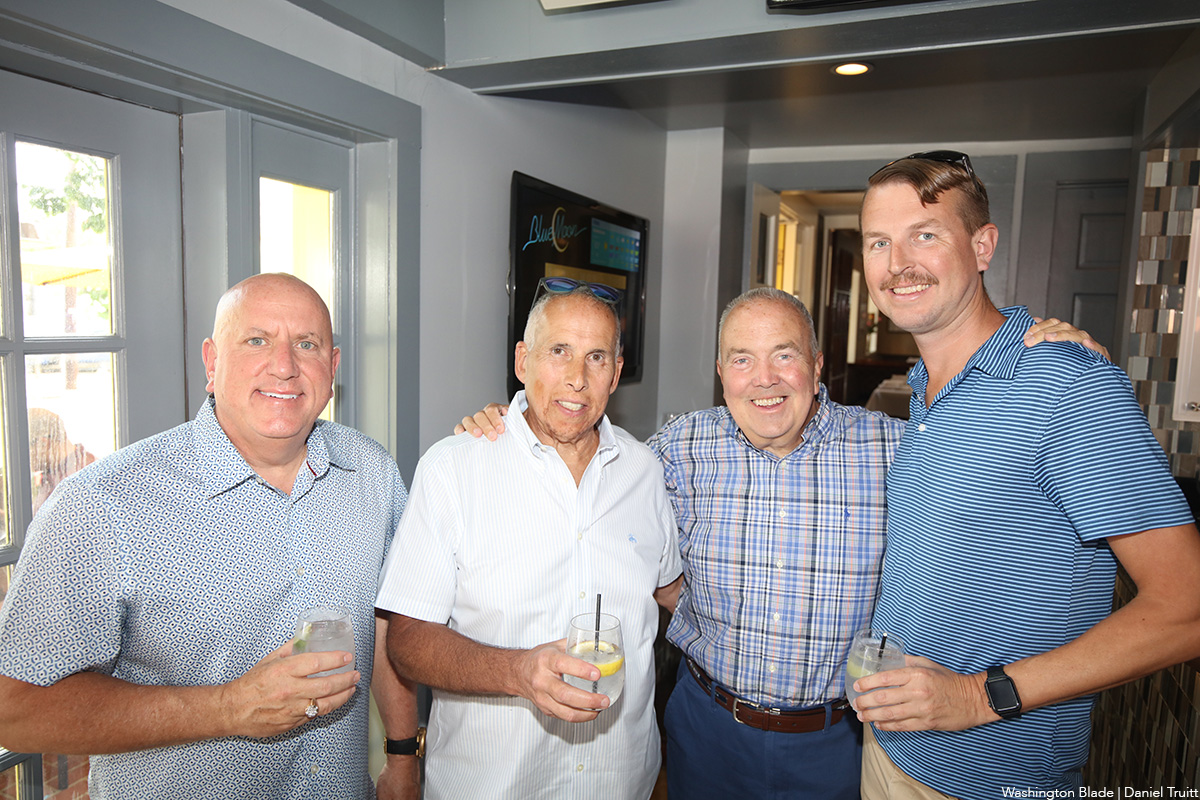

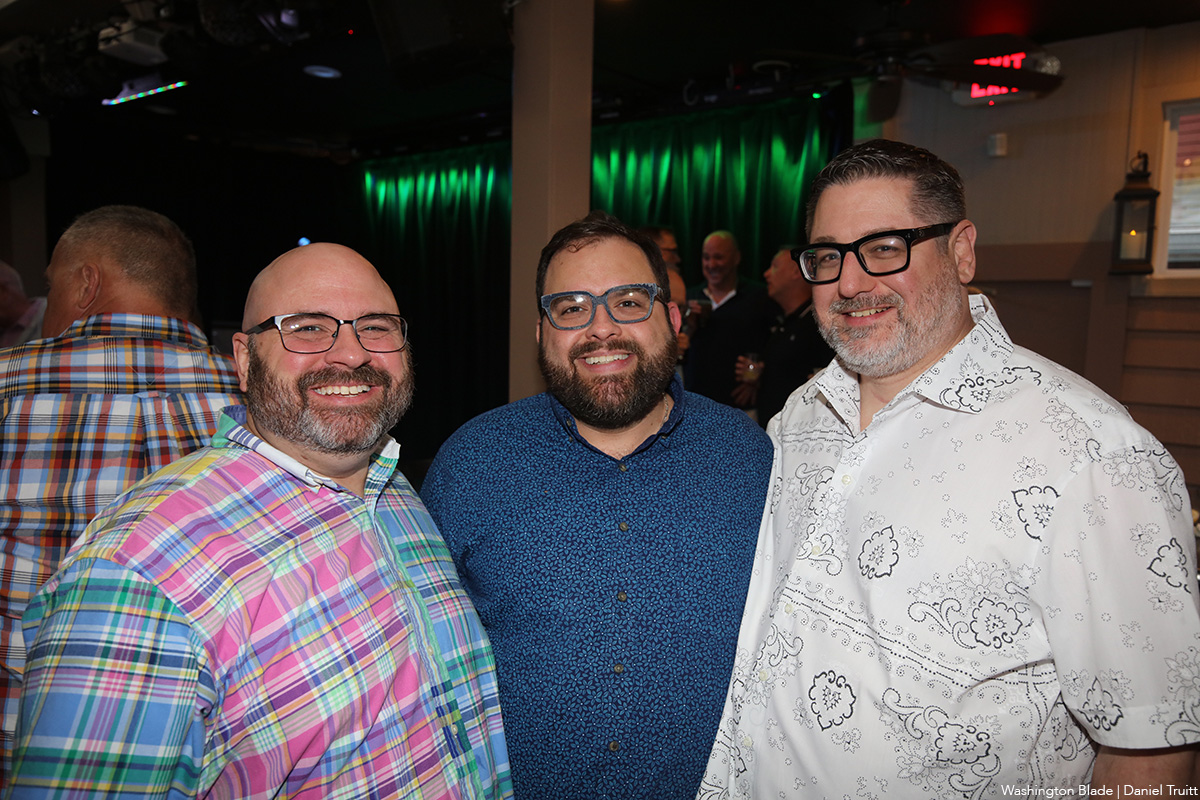
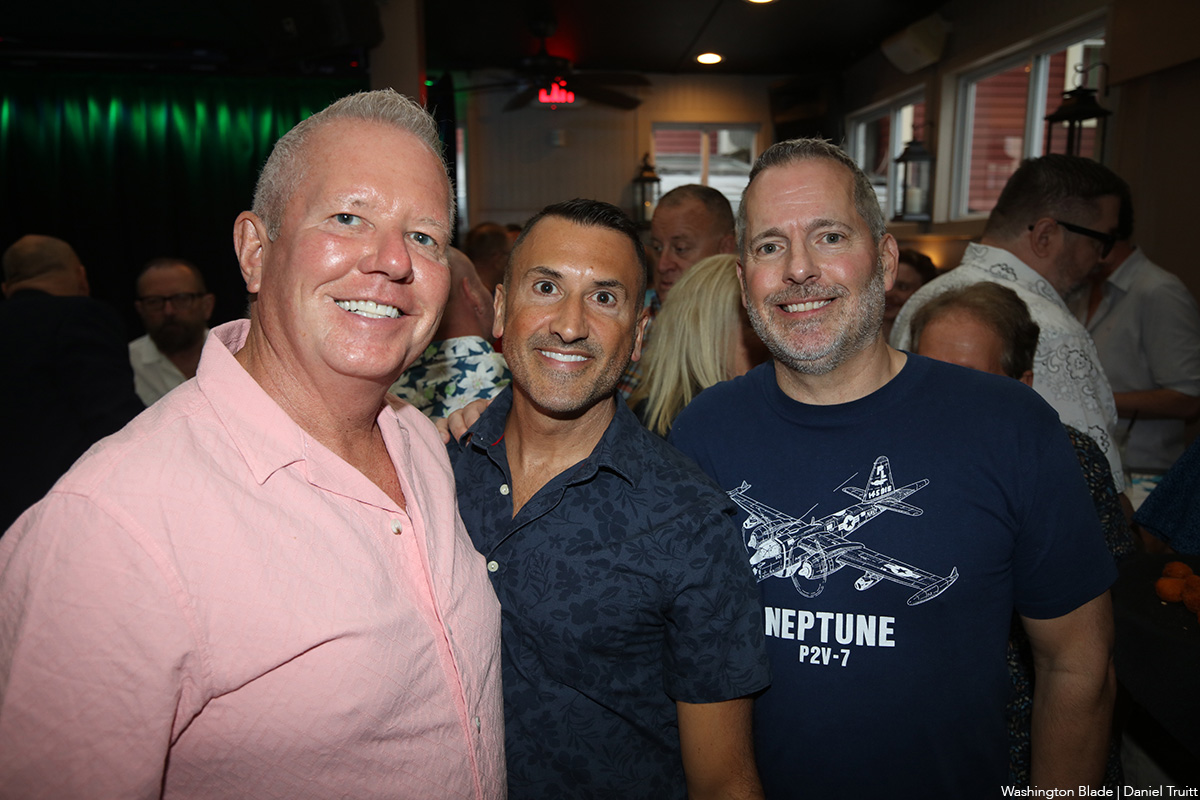
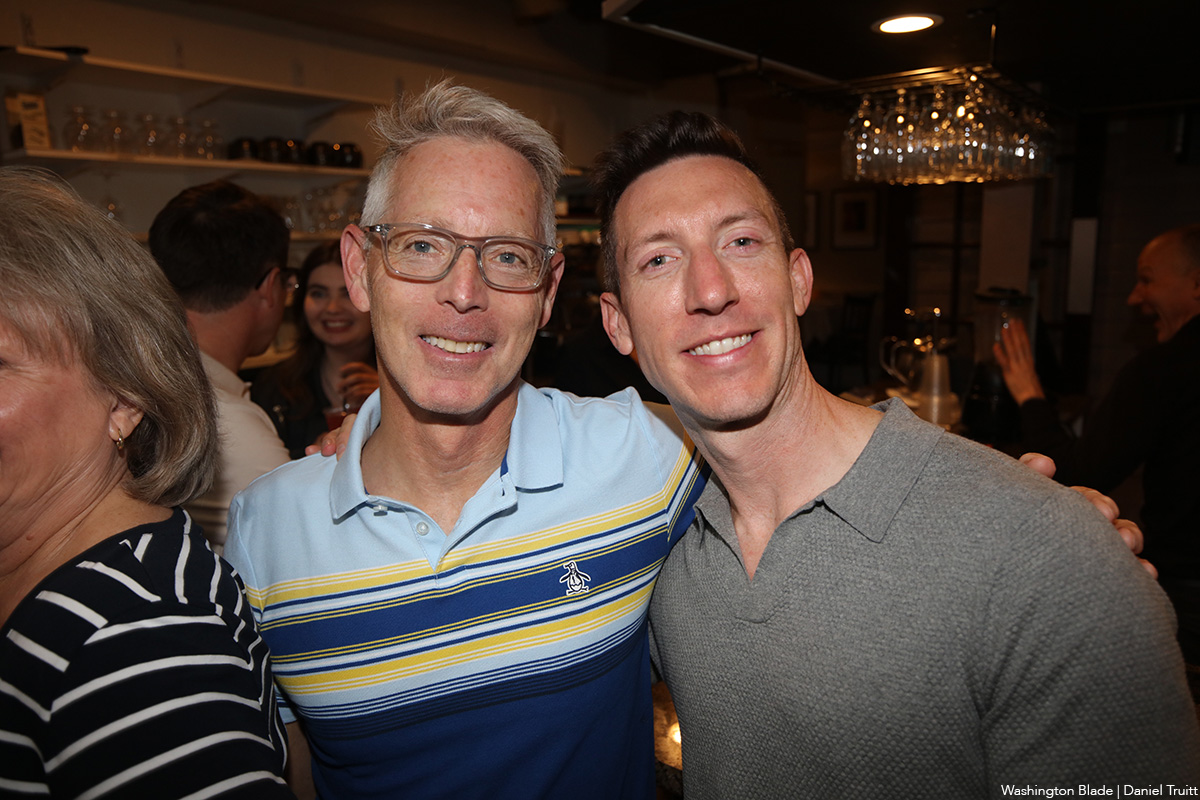
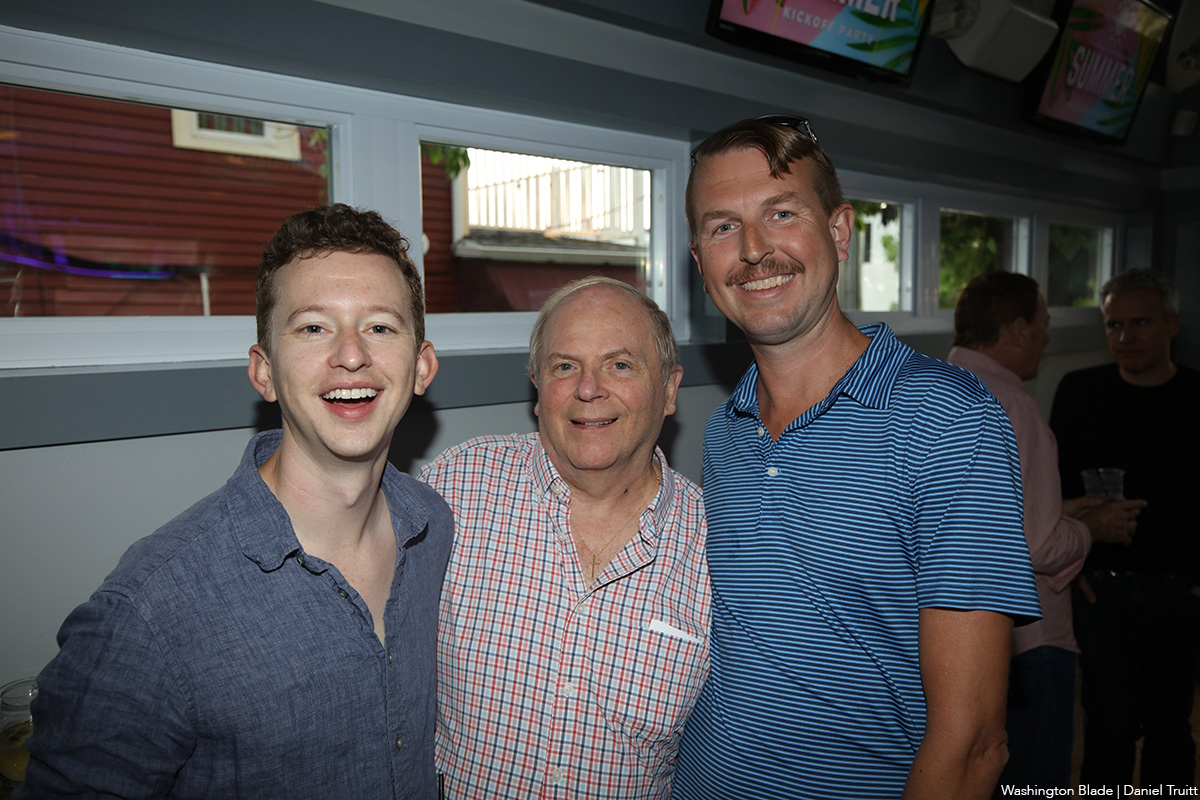

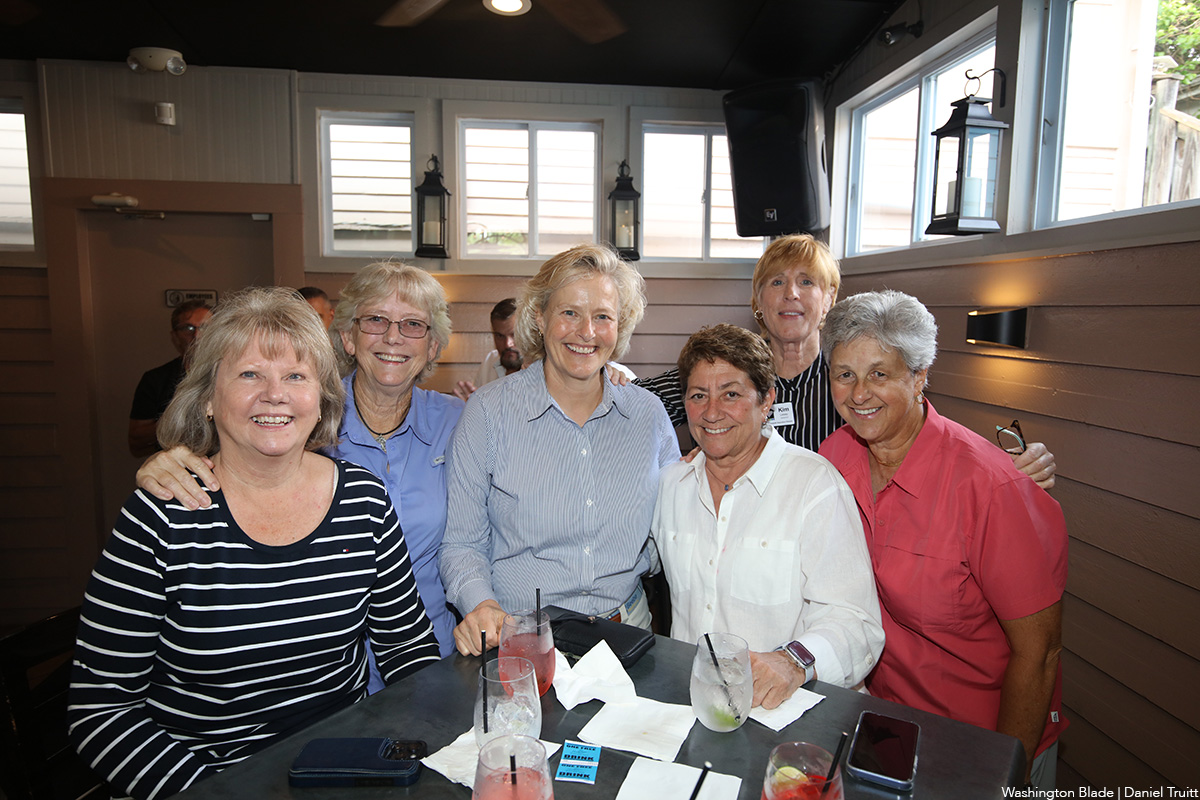
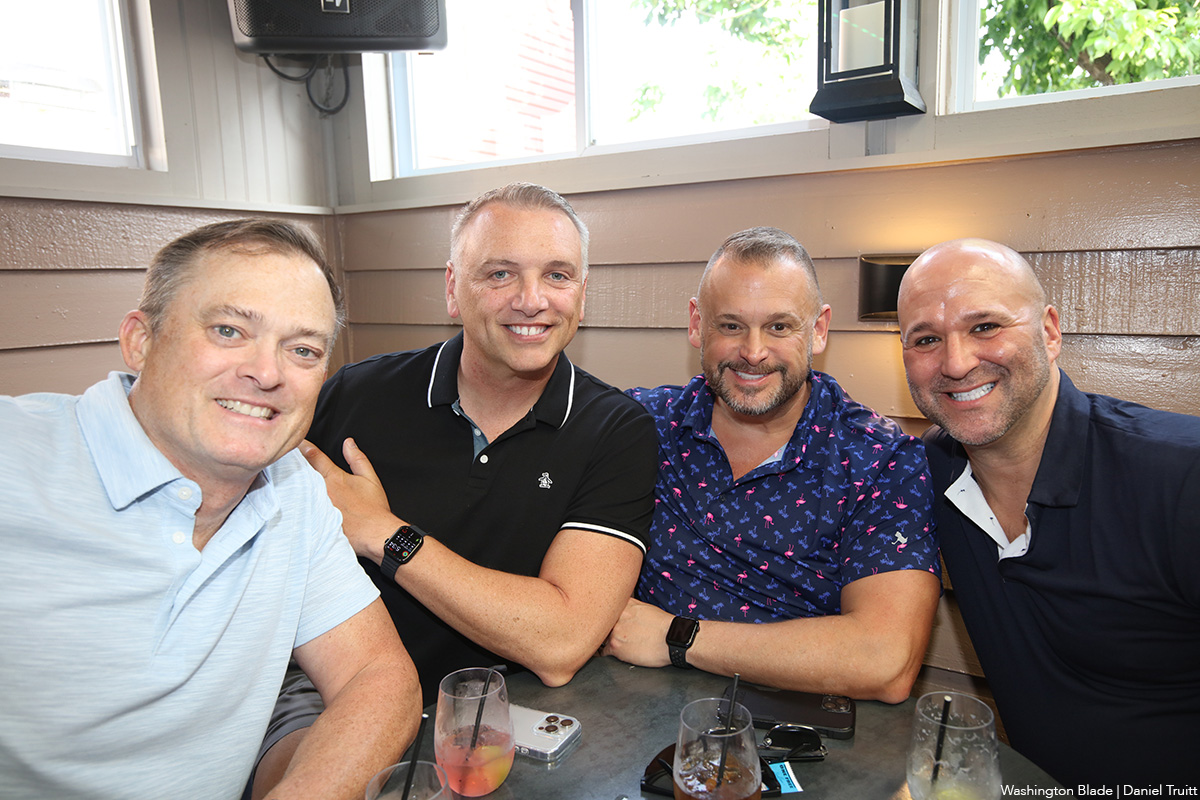

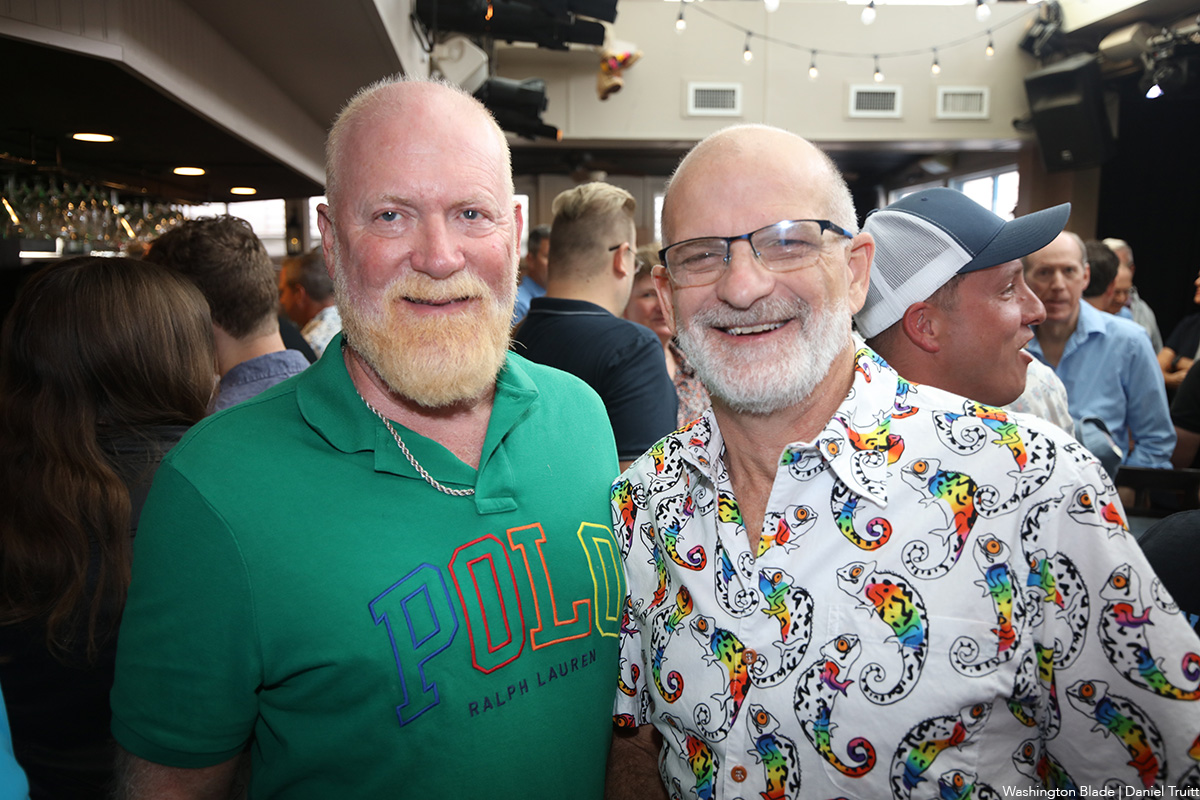


In some fowl fiction foreshadowing, a gay-owned chicken joint has come home to roost on U Street, taking a page from the chicken window subplot on the HBO show “Looking.”
Last Friday, Lucky Pollo – much more than just a takeout window – stretched its wings atop the busy nightlife corner of 14th and U Streets NW.
Behind the poultry production place is Zach Renovátes, a D.C.-based nightlife operator and managing partner of LGBTQ venues Bunker and District Eagle, as well as the LGBTQ event production company KINETIC Presents.
Renovátes opened Bunker in February 2023 and District Eagle in January of this year. Lucky Pollo is the third in his growing gay empire, though this time there are noshes.
“Lucky Pollo was meant to be fun and a little provocative,” Renovátes said.
Based around its Peruvian-style rotisserie chicken, Lucky Pollo is a quick-service restaurant boasting a small menu of poultry and sides. Renovátes says that the dishes are deeply rooted in Peruvian culinary tradition, “a playful experience alongside seriously good food.”
Lucky Pollo’s signature chicken is steeped in a dozen-plus-spice marinade for 24 hours. The meat is then slow-roasted, rotisserie-style, over oak-wood charcoal. Chicken options include quarter, half, and whole.
Helming the kitchen at Lucky Pollo is Chef Luis Herrera, who brings Peruvian recipes passed down through three generations, including his grandmother Laura’s original creations.
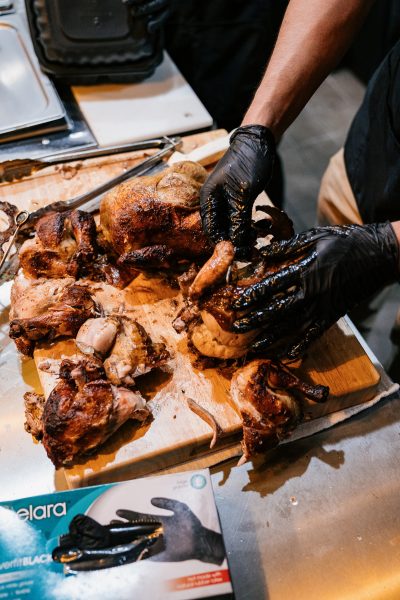
Beyond the full bird, the menu features Peruvian-inspired sides like yuca fries (“I personally love these,” says Renovátes) and fried plantains, as well as comfort classics such as mac and cheese and mashed potatoes, and bowls, wraps, and salads. Herrera oversees development of the multiple sauces (including staff favorite, the “secret green sauce”), crafted in-house using traditional Peruvian ingredients.
Lucky Pollo, in its streetside perch, is an independent concept from District Eagle, open to the public and staying open late (3 a.m. on weekends) to serve both nightlife guests and the wider U Street crowd hungry for late-night bites. However, just beyond the kitchen, tucked in the back lies a vintage 1950s candy machine—labeled “Out of Order,” which serves as the door leading to subterranean District Eagle.
Renovátes notes that when District Eagle is open, security staff will maintain a strict two-line policy, ensuring that those seeking meat to eat will not get entwined with those looking to gain access to District Eagle.
Lucky Pollo unites the need for sustenance with the idea of a bit of fortune, given its motto, “Get Lucky” and the whimsical brand mascot: a leather-booted chicken perched on a horseshoe. Renovátes and his District Eagle business partner had always been interested in opening a restaurant, and the Lucky Pollo space was indeed lucky: It already came with a functional kitchen. Plus, he says, the nearby fast-casual places around 14th and U streets “don’t offer a lot of quality options,” so opening the chicken spot “was a no-brainer.”
The space, designed by NYC creative Jasin Cadic, blends theatrical street-art-style vibes with Keith Haring-inspired wall prints, neon signs, and ceiling-hung chicken figurines —”some edgy, some sweet,” says Renovátes —creating an immersive, playful atmosphere. Lucky Pollo and District Eagle maintain separate amenities for their respective customers.
Lucky Pollo opened last week with a competition to devour a whole rotisserie chicken in the fastest time, with the winner earning $1,000 and a framed spot on the restaurant’s “Wall of Fame.” The opening also featured other games and prizes, and a full crowd spilling out the door.
“We want it to be a great place to eat, but also serve as a playful front for something completely unexpected.” Renovátes says.
On weekends especially, he jokes, the motto will be, ‘Come for the chicken, stay for the cock.’”

